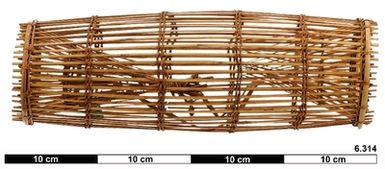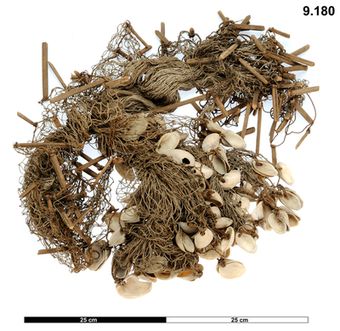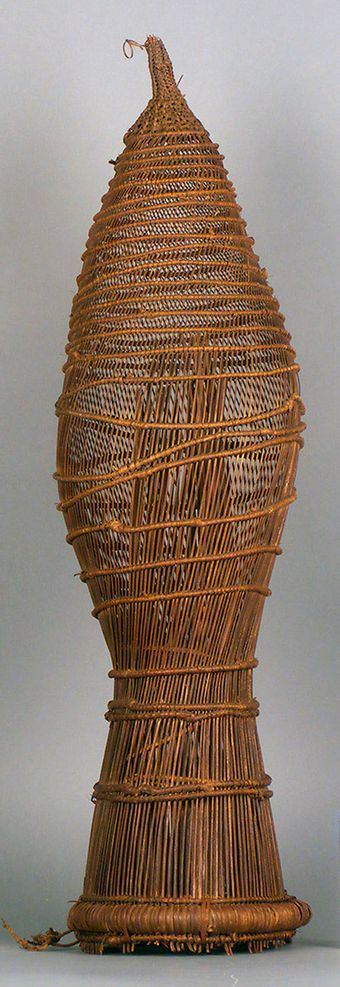Connect with Horniman Museum and Gardens
Contact this content partner to get more information about this item.
fish trap
- Description:
- Non-Return Fish Trap, Gulf Province, Papua New Guinea. This little fish trap from the Papuan Gulf on the southern coast of New Guinea provides an interesting example of people from different parts of the world coming up with the same solution to a similar problem. The small sticks making up the trap’s narrow conical entrance are flexible enough to let the fish in at the bait inside, but too stiff to let it back out again. With subtle differences, traps for fish and shellfish take this form all over the world, showing that some inventions are inspired as much by common sense as they are by the genius of any particular individual. In the Gulf Province, traps such as this are laid down attached to a stone weight, somewhere in the side creeks of a larger river, where currents are slower and fish are more likely to browse after a smell. It is often the responsibility of children to find the bait for these traps, and of women to fill, set and check them. Wood, vegetable fibre. Late 19th Century. Collected by Prof A. C. Haddon in 1888-1889, and presented to the Horniman Museum in 1906. No return fish trap made of vegetable fibre and wood.
- Format:
- image
- Collections:
- Horniman Museum and Gardens
- Content partner:
- Horniman Museum and Gardens
- Availability:
- Not specified
-
Copyright status: All rights reservedFind out more about what you are able to do with this itemThis item is all rights reserved, with means you'll have to get permission from Horniman Museum and Gardens before using it. For more information, please see our use and reuse page.More informationHorniman Museum and Gardens has this to say about the rights status of this item:
http://rightsstatements.org/vocab/InC/1.0/
What can I do with this item?Non-infringing useNZ copyright law does not prevent every use of a copyright work, and this item may be hosted by an international institute or organisation. You should consider what you can and cannot do with a copyright work.No sharingYou may not copy and/or share this item with others without further permission. This includes posting it on your blog, using it in a presentation, or any other public use.No modifyingYou are not allowed to adapt or remix this item into any other works.No commercial useYou may not use this item commercially.
Welcome and warm Pasifik greetings
The information on this site has been gathered from our content partners.
The names, terms, and labels that we present on the site may contain images or voices of deceased persons and may also reflect the bias, norms, and perspective of the period of time in which they were created. We accept that these may not be appropriate today.
If you have any concerns or questions about an item, please contact us.


